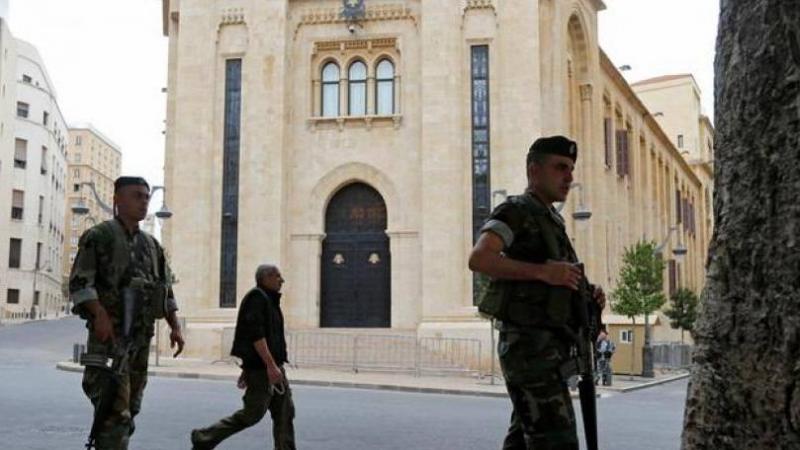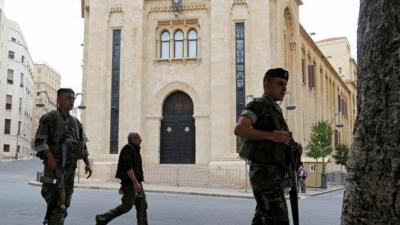The unprecedented victory achieved by the Lebanese Forces party in the parliamentary elections has overturned all predictions that anticipated a decrease in the number of its MPs. These expectations were promoted by the Free Patriotic Movement and the resistance axis led by Hezbollah and its allies, who sought to isolate the Lebanese Forces in electoral districts with significant Shia voters, using their power that ultimately backfired as they misused it to pressure their opponents. They failed to save their ally, MP Gibran Bassil, who struggled to regain traction among the Christian community that had turned against him in favor of his rivals, particularly Samir Geagea and other opposition groups.
Hezbollah's Secretary-General Hassan Nasrallah had promised in his speeches, intended to rally his supporters against the Lebanese Forces, to support his allies in the elections, referring to Bassil. However, he was unable to provide a sufficient boost to ensure his candidates’ victories, particularly in the Baalbek-Hermel, Jezzine-Saida, and Baabda-Metn districts, despite all the pressures exerted on their opponents.
The election results were like a thunderbolt that hit the Free Patriotic Movement and shocked Hezbollah and its allies, with the source of the shock coming from the ballots cast by Lebanese expats abroad, which led to Bassil's defeat by increasing the electoral thresholds for his opponents, primarily the Lebanese Forces party, which is preparing to enter parliament with the largest purely Christian parliamentary bloc.
This new situation is expected to shake up major aspects of the parliament, starting with the election of a new speaker that goes beyond reelecting Nabih Berri for a new term to electing his deputy, following the defeat of his perennial candidate Eli Faresli by Dr. Ghassan Skaf for the Orthodox seat in Western Bekaa.
Moreover, the victory of the Lebanese Forces, coupled with the Progressive Socialist Party's dominance in the Druze representation amid the absence of any competitor, and the prominent presence of opposition and change forces stepping for the first time into parliament, is likely to lead to a division of the parliament's composition evenly between the opposition and the ruling coalition. This will hold true unless the final vote count tips the scale in favor of the opposition, which will undoubtedly play a significant role in forming a new government once the current government shifts to caretaker status after the parliamentary term ends next Saturday.
However, this victory for the Lebanese Forces indicates that Bassil unknowingly performed a free service for Geagea by aligning with Hezbollah and defending it to the extent of adopting its accusations against Geagea of being an agent of the U.S. and Israel, believing he could win over Shia votes as a reserve in case of losing Christian support. Nonetheless, Bassil failed in his expectations as he couldn't secure victories for his candidates in districts under Hezbollah's influence, experiencing a backlash in the Christian street that did not align with the mood of the majority of Christians who sided more with his opponents, primarily due to his failure regarding the principle of sovereignty by providing cover for Hezbollah's arsenal.
It was also noted that hundreds of Shia voters were compelled to avoid exerted pressures by casting invalid votes not counted towards the electoral thresholds, allowing the change forces list in the third southern district (Nabatieh, Marjayoun, Hasbaya, Bint Jbeil) to make a breakthrough by unseating the leader of the Syrian Social Nationalist Party, MP Asaad Hardan, benefiting independent candidate Dr. Elias Gerada.
Thus, the surprise from the parliamentary elections has led to a shift in the political map, and Bassil’s damage control efforts portraying himself as a victim of a global war led by the U.S. and Israel to win sympathy in the Christian community have not helped reduce the elections' impact.
This also applies to Jumblatt's enemies, as he succeeded in abolishing the so-called Druze duality or trinity with the electoral defeats of MP Talal Arslan and former Minister Wiam Wahhab, as well as the loss of the National Party's representation in both its wings since 1992.
Regarding the new parliamentary map in light of Hariri's abstention from running in the elections, his absence from the contest has indeed lowered the turnout among Sunni voters, according to sources in the Future Movement. However, this vacancy has affected the scattering of Sunni deputies without enabling Hezbollah to fill the void with a Sunni bloc surpassing the number of deputies in the consultative meeting allied with the party.
Thus, the fill of the Sunni void in parliament has not favored the party and its allies as the final vote count, expected to determine the fate of more than one current deputy allied with Hezbollah, suggests another significant presence in Tripoli for former Minister Ashraf Rifi and for candidates from opposition lists contesting the elections for the first time.
Although the decreased turnout among Sunni voters in Akkar reflected on the election results favoring the Free Patriotic Movement and its allies, leading them to secure parliamentary seats previously held solely by MP Asaad Dergham, it permitted those aligned with political Hariri to access parliament, despite the former blue current leader Mustafa Alloush failing to secure the electoral threshold needed to return to the parliament.
Consequently, the victory achieved by Michel Moawad allied with the Kataeb party, which has enhanced its presence in parliament with a fourth seat gained in Kesrouan, enabled him to solidify his foothold in the north. However, the most significant victories for the change forces occurred in the Chouf-Aley district through the "United for Change" coalition, which has won three parliamentary seats leading to unseating MP Areslan in Aley by his competitor, activist Mark Daou, who won along with his companions Najat Aoun Saliba and Halima Al-Qaqour for the Maronite and Sunni seats in Chouf, as well as in Beirut II, where the "Beirut Change" list scored a surprising win against its competing lists.
Ultimately, what distinguishes the Lebanese Forces from other opposition and change forces is that it is the only party with representatives in all Christian districts across the country. No other Christian party has achieved such a presence, particularly in Jezzine, which witnessed the absence of the Free Patriotic Movement compared to the two seats won by the Lebanese Forces and one for the alliance of Osama Saad and Abdul Rahman Al-Bizri.
The question remains: What comes next? How will the opposition and change forces handle the victory they achieved? Is there a possibility for converging around a unified work program on common points that are a subject of understanding, forming a starting point for drawing up a roadmap beginning with the election of a new Parliament speaker through forming a government and culminating in the major political confrontation of electing a new President of the Republic to succeed the current General Michel Aoun, especially since points of agreement take precedence over those requiring communication to bridge differences?
Mohammad Shukair - Asharq Al-Awsat




